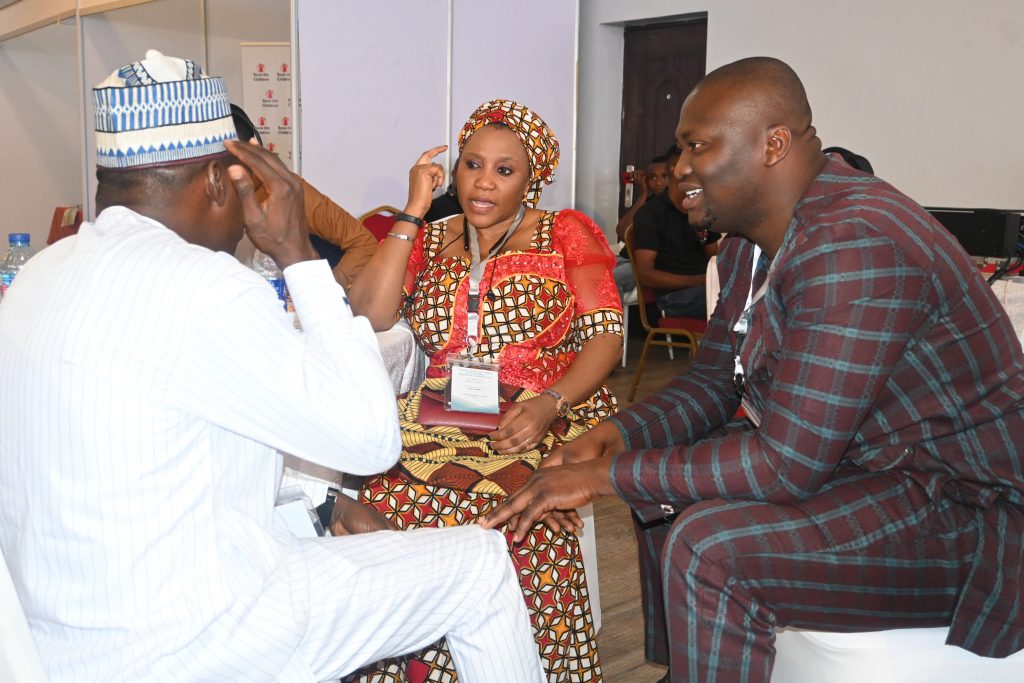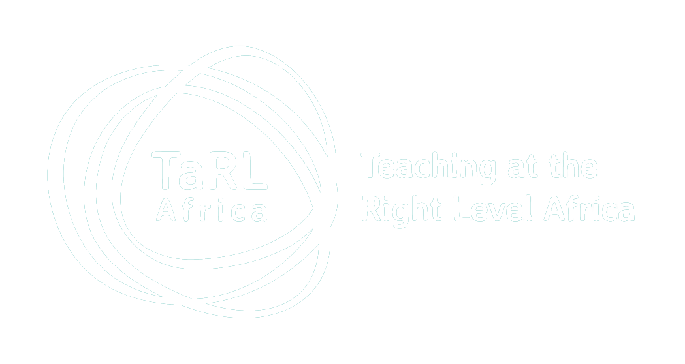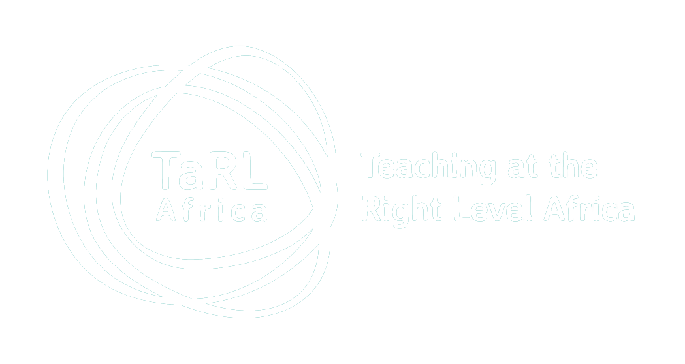
Ongoing panel discussion at the TaRL National Conference in Abuja, Nigeria. The discussion highlights the importance and challenges of foundational skills amongst learners in Nigeria. Credits: TaRL Africa
The Teaching at the Right Level (TaRL) National Conference was held in Abuja, Nigeria on the 27th and 28th of June, 2022. This first-of-its-kind event brought together over 100 participants cutting across officials from the Federal Ministry of Education, National Commission of Colleges of Education, Teachers Registration Council of Nigeria, State Universal Basic Education Boards (SUBEBs), and state ministries of education. The States represented were Kano, Kebbi, Borno, Adamawa, Yobe, Kaduna, Bauchi, Katsina, and Jigawa states.
Like many countries across the world, Nigeria is facing a learning crisis with its learning outcomes being among the lowest globally. Although children attend school, they still struggle to learn foundational literacy and math skills. The COVID-19 pandemic has further exacerbated this learning poverty. According to the 2020 National Learning Assessment (NLA) more than 55% of grade four children cannot read fluently and with comprehension. Additionally, the 2020 Nigeria Education Data Survey (NEDS) reported that only 66.8 percent of children aged 12 to 14 can read at least one of three words, and 67.3 percent of children of the same age group can add single digits.
Other factors contributing to low learning outcomes among primary grade learners in Nigeria include a lack of trained teachers and a high student-to-teacher ratio. Speaking during the conference, Johanna Koernig, the Education Advisor at the FCDO also highlighted the need for professional development and classroom support for teachers. “Data indicates that 24 percent of teachers in Nigeria don’t hold education degrees. This lack of professional development and classroom-level support further exacerbates the teacher’s ability to help their learners acquire foundational skills. Interventions should therefore focus on supporting teachers rather than on providing inputs like textbooks,” said Koernig. Speakers also emphasized the need to include mother tongue in learning.

Conference participants engaging in group discussions at the TaRL Conference in Abuja, Nigeria. Credits: TaRL Africa
The learning crisis in Nigeria has spurred stakeholders in the education system to design, support, and implement interventions that help learners sustainably acquire foundational skills. Teaching at the Right Level (TaRL) is one such evidence-based approach that has been shown to improve learning outcomes in children by grouping them according to their learning level and engaging them in interactive activities. During the conference, data shared by TaRL Africa’s Nigeria Country Manager, Inyang Umoren showed that children learnt and progressed quickly through the approach. Other lessons from TaRL implementation showed that it is flexible and contextualizable. “The Government is a critical partner to our success in integrating the approach in the Nigerian school system and championing its implementation,” she said.
Looking forward: Continued action to accelerate foundational learning
The learning crisis in Nigeria can be addressed through continuous efforts by actors across the education system to share learnings from the different foundational skills programmes and collaborate to improve learning outcomes. Nigeria has a growing community of TaRL champions and implementers of foundational literacy and numeracy programs. This demonstrates the immense potential of its education system to serve as a hub for innovation and knowledge-sharing on these topics. TaRL Africa plans to build a Community of Practice in the country, which will enable collaboration and communication across the system on how to accelerate learning and empower all children with foundational skills.

